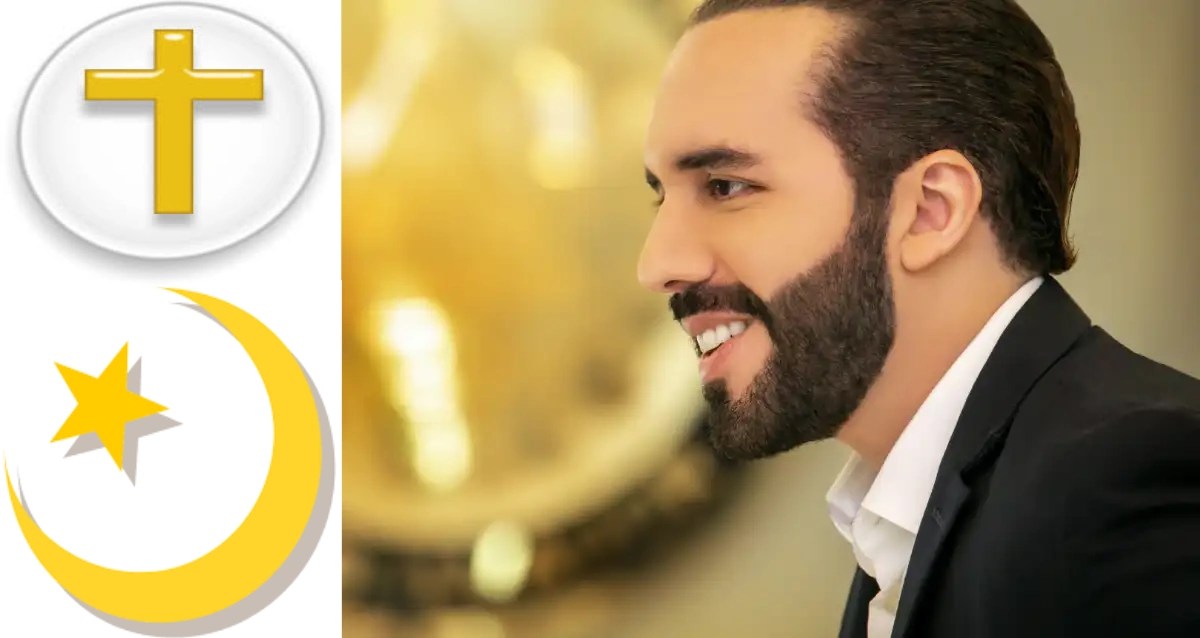
Nayib Bukele, the President of El Salvador, has garnered international attention not only for his bold political moves but also for his unique approach to leadership, which intertwines with his personal beliefs and values. As a prominent figure in Central America, his stance on various issues, including religion, has sparked conversations and debates. In this article, we will delve into Nayib Bukele's religious views, exploring how they influence his policies and interactions with the public.
The intersection of religion and politics is a crucial aspect of many leaders' identities, and Nayib Bukele is no exception. His rise to power was marked by a desire to break away from traditional norms, and his religious beliefs play a significant role in shaping his vision for El Salvador. Understanding his perspective on religion can provide insights into his leadership style and the cultural context of his country.
As we examine Nayib Bukele's religion, we will also consider the broader implications of faith in politics. How does Bukele's religious affiliation resonate with the Salvadoran populace? What challenges does he face in a predominantly Catholic country? Join us as we navigate these questions and uncover the intricate relationship between Nayib Bukele and his religious beliefs.
What is Nayib Bukele's Religious Background?
Nayib Bukele was born into a Muslim family, which sets him apart in a country where the majority practice Roman Catholicism. His unique upbringing has influenced his worldview and approach to leadership. Despite the predominantly Catholic landscape of El Salvador, Bukele has maintained his Muslim identity, which he openly acknowledges in various public forums.
How Does Nayib Bukele's Religion Influence His Leadership?
Religion can significantly impact a leader's decisions and policies, and Nayib Bukele's case is no different. His beliefs often guide his approach to governance and social issues. For instance, his administration has focused on inclusivity, aiming to bridge gaps between different religious communities in El Salvador. His efforts to promote tolerance and coexistence demonstrate his commitment to fostering a harmonious society.
What Are the Key Elements of Nayib Bukele's Faith?
While Bukele's religious practices are private, certain elements of his faith are evident in his public life:
- Emphasis on Community: Bukele's faith encourages a strong sense of community, influencing his policies that promote social welfare.
- Social Justice: His Islamic background emphasizes the importance of social justice, which is reflected in his initiatives to improve the lives of marginalized populations.
- Dialogue and Respect: Bukele advocates for interfaith dialogue, showing respect for various beliefs within the country.
What Challenges Does Nayib Bukele Face Regarding His Religion?
Despite his efforts to promote inclusivity, Nayib Bukele faces challenges stemming from his religious background. The predominant Catholic culture in El Salvador sometimes leads to skepticism toward his leadership among more traditional citizens. His political opponents often attempt to leverage his religion against him, questioning his loyalty to the country and its predominantly Christian values.
How Do Salvadorans Perceive Nayib Bukele's Religion?
The perception of Nayib Bukele's religion among Salvadorans is mixed. While some appreciate his commitment to promoting tolerance, others remain wary of his non-Catholic identity. Public opinion is heavily influenced by cultural norms and the historical context of religion in El Salvador. Understanding this perception is vital for Bukele as he navigates his presidency.
What Role Does Religion Play in Bukele's Policies?
Religion plays a nuanced role in Nayib Bukele's policies. Although he identifies as Muslim, his administration has focused on secular governance, ensuring that religious beliefs do not dictate policy decisions. However, his commitment to social justice and community welfare can be traced back to his faith, which shapes his vision for a better El Salvador.
Can Nayib Bukele Bridge the Gap Between Different Faiths?
Nayib Bukele's presidency presents an opportunity for greater interfaith dialogue and understanding in El Salvador. By promoting inclusivity and respect for various beliefs, he has the potential to bridge the gap between different religious communities. His unique position as a Muslim leader in a predominantly Catholic country allows him to advocate for coexistence and mutual respect.
What Is the Future of Nayib Bukele's Religion in Politics?
As Nayib Bukele continues to lead El Salvador, the future of his religion in politics remains a topic of discussion. His ability to maintain a balance between his personal beliefs and the expectations of the Salvadoran people will be crucial for his political success. The ongoing dialogue about religion in politics will likely shape the narrative surrounding his presidency and influence future leaders in the region.
| Personal Details | Bio Data |
|---|---|
| Name | Nayib Bukele |
| Date of Birth | July 24, 1981 |
| Nationality | Salvadoran |
| Religion | Islam |
| Position | President of El Salvador |
In conclusion, Nayib Bukele's religion plays a significant role in shaping his identity as a leader. His unique background and commitment to inclusivity provide a fresh perspective in a country where traditional beliefs often dominate. As he navigates the complexities of politics and faith, Bukele's journey serves as a reminder of the importance of understanding diverse beliefs in fostering a peaceful and inclusive society.
ncG1vNJzZmivp6x7p7XGoaugqpGlva2x05qnZ5ufonyjwsSnq66qlZp%2Br7HDaKWasZmXeqPByp6jnmWimrmqs8iopWegpKK5